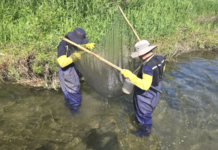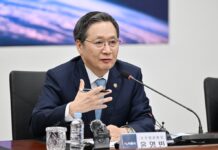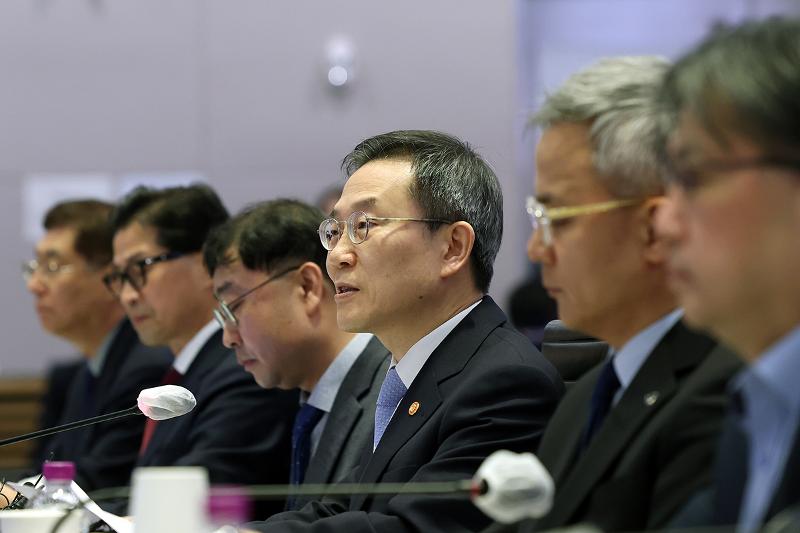
Minister of Science and ICT Lee Jong Ho (center) on April 4 speaks at the launching ceremony and inaugural meeting of a supreme council on artificial intelligence (AI) strategy at the Federation of Korean Industries in Seoul’s Yeongdeungpo-gu District. He announced the government’s plan to innovate AI technologies to make the nation one of the world’s top three countries in the field
By Yoon Sojung
Photos = Jeon Han
Video = Jeon Han and Lee Jun Young
The government’s new supreme council on artificial intelligence (AI) strategy will serve as the nation’s control tower in the field.
The Ministry of Science and ICT on April 4 held the launching ceremony for the body at the Federation of Korean Industries in Seoul’s Yeongdeungpo-gu District, with Minister of Science and ICT Lee Jong Ho and Taejae University President Yeom Jaeho serving as co-chair.
Comprising 32 members including the two co-chairs, 23 leading AI figures from the private sector and seven from government ministries, the council will make proposals for and advise overall policy in AI including human resources, semiconductors, research and development (R&D), and ethics. Related ministries will reflect the results of the council’s discussions in jointly devising measures to implement them.
“We will host next month the AI Summit Seoul,” Minister Lee said at the ceremony. “At the summit, world leaders and CEOs of major companies will discuss our proposals for global AI standards.”
“To make Korea one of the world’s top three AI countries in name and reality, the government will invest KRW 710 billion in the sector,” he added. “We will also quickly implement policy actions to boost digital capacity and technological advancement for AI innovation.”
The ceremony was followed by the council’s inaugural meeting, in which members announced agenda such as “growth strategies to achieve AI digital innovation” and a project involving the people, industry and government to make AI part of daily life.
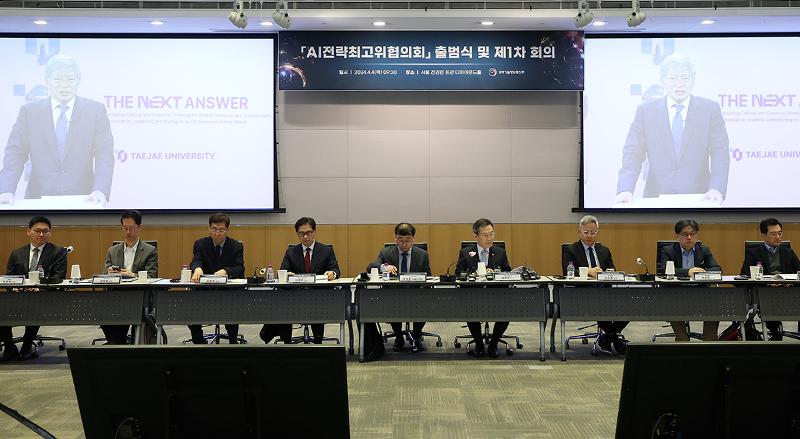
Taejae University President Yeom Jaeho, who co-chairs the government’s new supreme council on AI strategy, on April 4 delivers a congratulatory message via video at the body’s launching ceremony in Seoul.
Four strategic tasks in the meeting were presented to make Korea a top three AI nation along with the U.S. and China: securing a globally competitive innovation ecosystem for AI; accelerating AI transformation in manufacturing and the service sector; incorporating leading AI in daily life; and building a new digital order through policies to resolve problems stemming from the spread of AI.
The government will thus prepare strategies for innovation of AI technology and form AI era networks that include development of a highly trained workforce and large-size R&D in AI to secure the AI innovation system.
To ensure that AI benefits all people, public and private projects will seek to make AI part of daily life like intensive AI support to areas lacking private investment such as child rearing and caring and education and internalization of AI technology in public administration based on a digital e-government platform.
“We will expand the range of interactive services closely related to daily life such as health, disease, social welfare and child care,” said Um Yeol, the ministry’s policy officer for artificial intelligence. “We will develop hyperscale AI services to promote the spread of AI in all fields including law and media, as well as boost public services such as disaster response and government administration by incorporating AI in public governance to raise the quality of public service.”
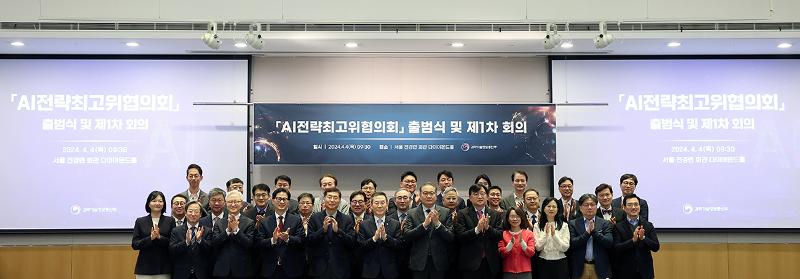
This group photo taken on April 4 is of members from the public, industry and academic at the launching ceremony and inaugural meeting of the government’s supreme council on AI strategy at the Federation of Korean Industries in Seoul.






